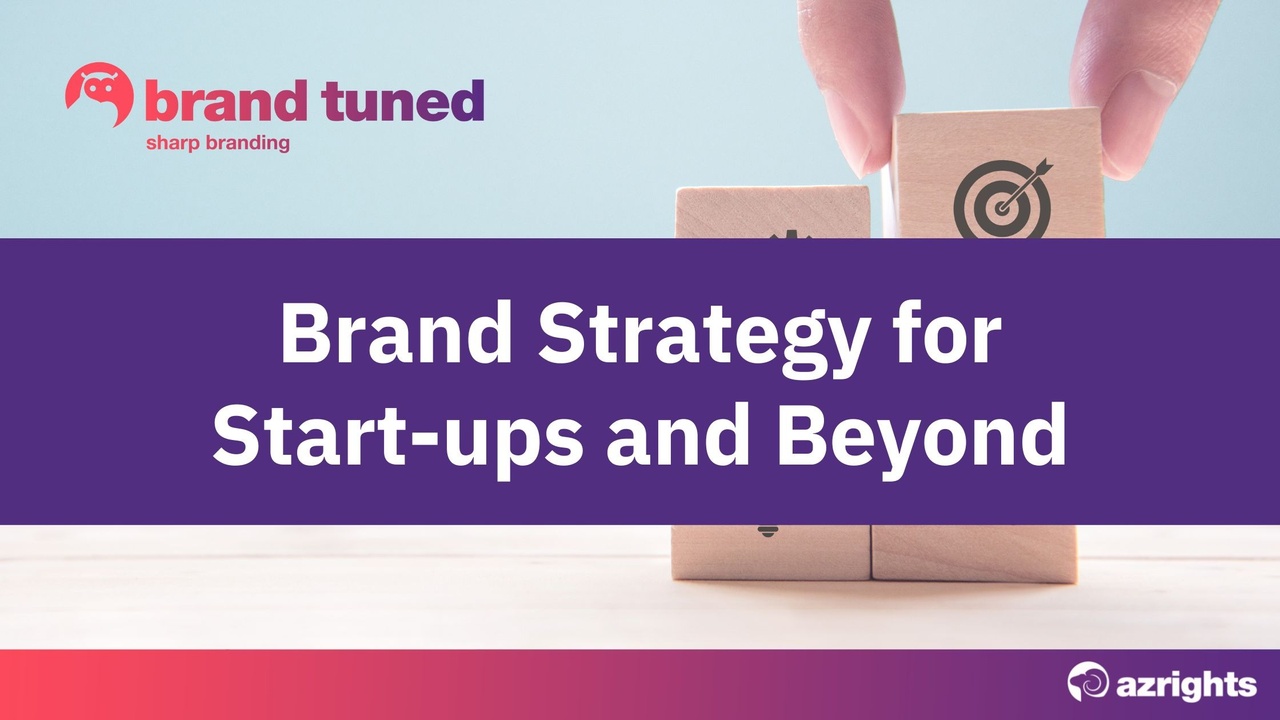Brand Strategy for Start-ups and Beyond
Sep 23, 2022
New businesses can change radically in the early years, so that a few years after starting, many look nothing like their initial manifestation.
For most start-ups, it’s key to first prove their concept, by verifying that there is a market need for their goods or services. So, the strategy for start-ups should generally be NOT to spend too much money on anything, be it designs, or intellectual property protection. However, the personal circumstances of the founders and the type of business venture will impact how best to proceed.
There are exceptions to every rule. For start-ups introducing an innovative concept, a temporary name may compromise the idea. For example, when Tesco introduced its loyalty card scheme the concept of loyalty cards was novel and unknown. The main way to preserve the value that would be derived from such a concept, is through the brand name. Therefore, opting for a temporary name would be a mistake for a start-up introducing a new concept. The idea might gain traction while the business is in proof-of-concept stage.
Similarly, for some products, such as those sold in supermarkets, the packaging may be an important component of the product’s appeal, so that you would need finalised designs even during proof-of-concept stage.
A good brand strategist who is sensitive to the needs of the start-up, will know where the money needs to be spent. Supporting the founder with marketing may be more appropriate than design initially. Some quick designs combined with help to understand Lean Start up principles would ensure the start-up doesn’t waste money creating an all singing, all dancing product that’s not been tested against what the target market wants and needs. If founders are helped to create a minimum viable product, and to identify the right target customers to get feedback from, they will be better able to iterate a workable product.
A major difference between start-ups and early-stage businesses is that early-stage businesses generally have a proven concept. I often work with such businesses. They have been in business for 1-3 years and discovered a formula that works. They will seek to “rebrand” in the sense that they want to finalise their name and visual identity.
Whether they change their name or continue to use the same one, these businesses have proof of concept, so what they primarily need from brand strategy is to create the right identity designs and website. IP protection should be part and parcel of the work too.
When choosing identifiers such as symbols, characters, jingles, sounds, colours, shapes, and taglines be sure to focus on how ownership over identifiers will be secured because it’s essential that identifiers remain unique to a brand.
There is a world of difference between the actions needed to create the strategy of a start-up, to that of an early-stage business, to that of an established business. The work differs, not just because of the size or stage the business has reached but also due to the different objectives each is likely to have, and the reason the business is seeking support with its branding.
Brand strategy for established brands is part and parcel of brand management. Diagnosing the situation a business faces, setting objectives and deciding how to achieve those objectives is the responsibility of the marketing department and would be dealt with annually as part the marketing plan.
Teams working on the brand strategy of established brands might only create a single new identity asset during a project, if that. On the other hand, when you create a brand for a start-up or early-stage business you’re choosing a range of identifiers – a name, logo, tagline, colours, symbol, sounds and the like. So, start-up strategists benefit from understanding intellectual property. That’s why the Brand Tuned Accreditation program that we’ve just introduced is aimed at new brands.
However, even those working with large established brands should learn about intellectual property because the very fact that they only occasionally introduce a new name or other identifier means they are more at risk of getting it wrong and choosing identifiers that are not right for the business. Unless they know how IP laws apply to symbols, characters, jingles, sounds, colours, shapes, and taglines they may fail to choose distinctive, ownable ones. They also need to address how ownership over the identifiers they create will be secured both in the short and long term. So brand strategists need a deep enough understanding of Identity and Distinctiveness to know what’s involved to own a colour or sound for example.
That’s why I’m introducing an identity and distinctiveness course for brand strategists. Might this be of interest to you? Register your interest by visiting the Training page on brandtuned.com, or find the link in the show notes of the brand strategy podcast.

